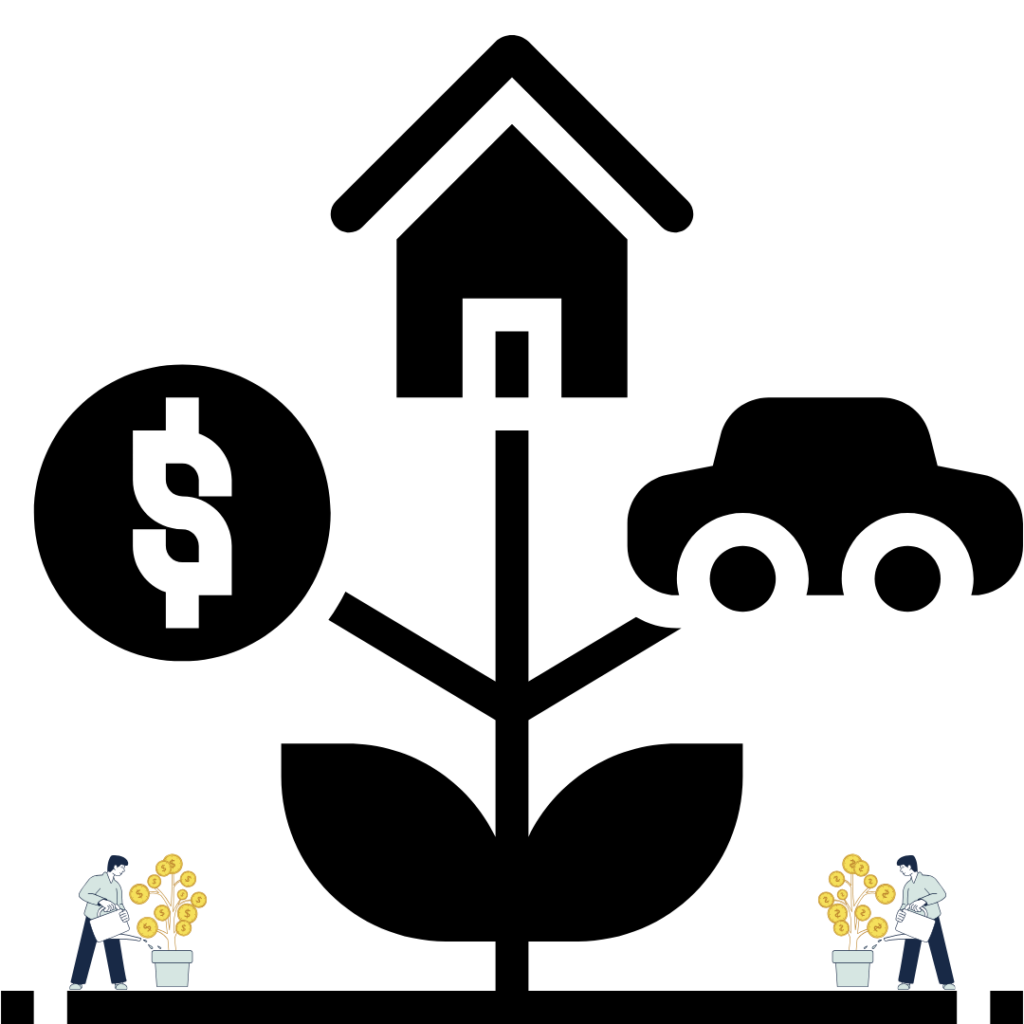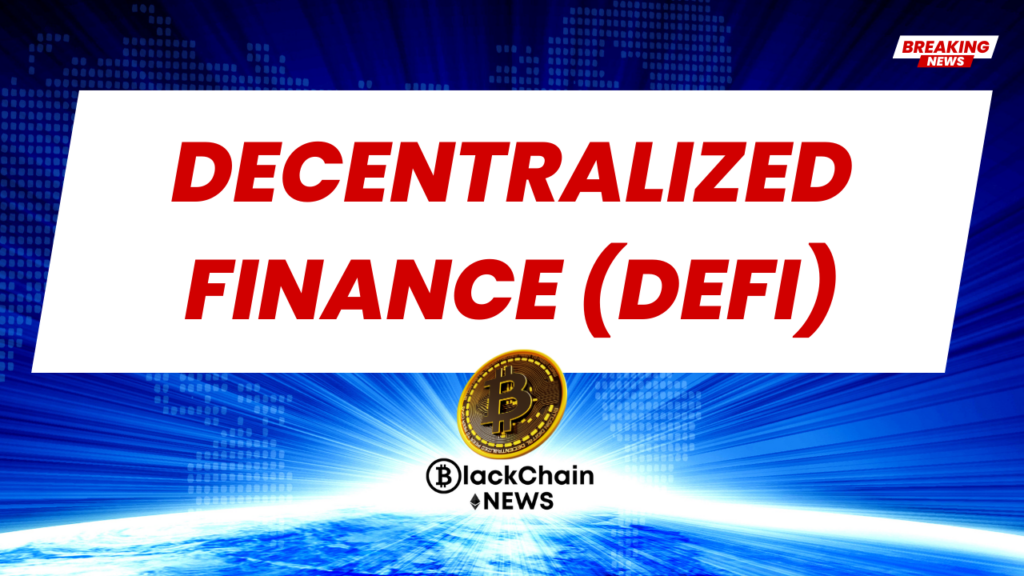Decentralized Finance (DeFi): Empowering Black Economic Growth at the Black Blockchain Summit 2024
During the Black Blockchain Summit 2024, Reggie Middleton emphasized the impact of decentralized finance (DeFi) in advancing economic prosperity among the Black community. He also underscored the significance of possessing the knowledge and infrastructure to utilize DeFi to generate wealth effectively.
Table of Contents
- Introduction to the Discussion
- Who is Reggie Middleton?
- The Importance of Knowledge in Technology
- Understanding DeFi and Its Foundations
- The Significance of Infrastructure Ownership
- Generational vs. Dynastic Wealth
- Financialization of Bitcoin Explained
- The Role of Major Financial Institutions
- Legal Challenges in the Crypto Space
- Market Dynamics and Bitcoin’s Correlation
Introduction to the Discussion
The concept of decentralized finance (DeFi) marks a groundbreaking change in our perception of currency management and investment strategies for economic empowerment purposes. DeFis primary goal is to remove the need for intermediaries so that individuals can independently manage their dealings and possessions. This shift towards inclusivity offers opportunities for underserved communities like the African American population, who have historically faced barriers in accessing traditional banking services. The discourse on DeFi transcends discussions on currencies; it aims to establish a fairer financial framework overall.
The Role of Technology in Empowerment
When exploring this subject further, it’s important to grasp how technology empowers people. Technology can act as a pathway to generating wealth; however, it demands expertise and motivation to unlock its capabilities. Decentralized Finance (DeFi) is a resource that has the potential to provide opportunities for freedom and asset accumulation when utilized efficiently.
Who is Reggie Middleton?
Reggie Middleton is a trailblazer in the world of DeFi, where he serves as the CEO of Veritasium. He embarked on his path back in 2013 after realizing the game-changing impact of technology and its relevance in the financial sector. Not only is Middleton a tech innovator but also a forward thinker committed to developing tools that enable people through information and technological advancements. With multiple patents under his belt, he has paved the way for what we currently refer to as decentralized finance (Defi).

A Visionary Leader
Middleton’s dedication to education and empowerment shines through in his approach to DeFi. He emphasizes the importance of knowledge in accessing prospects and inspiring others to seize control of their destinies by sharing insights and experiences that showcase one person’s influence on a community as a whole.
The Importance of Knowledge in Technology
According to Reggie Middleton, expertise is key in the world of technology; without it, technology is a tool without purpose. One must grasp its mechanisms, principles, and advantages to utilize decentralized finance. This knowledge enables informed choices and ultimately leads to financial empowerment.
Building Knowledge for Empowerment
A plan relies heavily on a solid educational background, particularly in decentralized finance (DeFi). Let’s explore some methods to expand your understanding of this field.
- Online Courses: Many platforms offer courses on blockchain technology and DeFi principles.
- Community Engagement: Joining local or online communities can provide support and shared learning experiences.
- Workshops and Seminars: Participating in events can help individuals stay updated on the latest trends and technologies.
Pursuing information and learning things about decentralized finance can help individuals empower themselves to better understand its complexities.
Understanding Defi and Its Foundations
Decentralized finance covers services that utilize blockchain technology instead of relying solely upon centralized institutions, like traditional finance does so often. Unlike finance, which relies heavily upon centralized institutions for its operation and oversight, DeFi operates using a smart contract network, which automates transactions efficiently and decreases human dependency. This change results in a landscape where individuals from all walks of life with internet access can engage actively without facing significant barriers or limitations.
Key Components of DeFi
To fully comprehend the possibilities offered by decentralized finance (DeFi), it is essential to grasp the building blocks that form its core.
- Smart Contracts: Self-executing contracts with the terms of the agreement directly written into code.
- Decentralized Applications (dApps): Applications that run on a blockchain network and offer various financial services.
- Liquidity Pools: Collections of funds locked in a smart contract that facilitates trading and lending.
The collaboration of these elements contributes to establishing a safe setting that promotes progress and economic advancement.
The Significance of Infrastructure Ownership
Decentralized finance highlights the importance of owning infrastructure, according to Reggie Middleton, who emphasizes that possessing the underlying technology is crucial for maximizing the advantages of DeFi—a parallel to owning estate, where controlling the land offers influence and prospects.
Why Infrastructure Matters
Owning the infrastructure allows individuals to:
- Control Access: Just as owning property gives you control over who enters, owning DeFi infrastructure allows you to dictate the terms of engagement.
- Benefit from Innovation: Infrastructure owners can develop new applications and services, driving economic growth.
- Build Wealth: As the DeFi landscape expands, owning the foundational technology can yield significant financial rewards.
In this changing landscape , individuals who grasp and possess the infrastructure will have a significant advantage in succeeding.
Generational vs. Dynastic Wealth
The Black community must distinguish between generational wealth and dynastic wealth to enhance their well-being significantly. Generational wealth involves passing assets from one generation to another to establish a base. On the other hand…

The Concept of Dynastic Wealth
Families like the Rothschilds and the Rockefellers are known for their lasting wealth, passed down from generation to generation and grown consistently over time through investments and a focus on creating a lasting legacy rather than just accumulating money alone. This is dynastic wealth.
Strategies for Building Dynastic Wealth
- Invest in Education: Prioritize education to equip future generations with the knowledge necessary to manage and grow wealth.
- Entrepreneurship: Encourage entrepreneurial ventures that can yield significant returns and create a sustainable income stream.
- Asset Diversification: Invest in various asset classes, including real estate, stocks, and businesses, to mitigate risk and maximize growth potential.
By prioritizing wealth accumulation within the community across generations rather than relying on individual success alone, the possibility of building a solid financial foundation for future descendants is greatly enhanced.
Financialization of Bitcoin Explained
Bitcoin’s evolution into an asset through financialization has significantly impacted investors and the broader financial industry.
What is Financialization?
Financialization is the act of transforming assets into instruments that are tradable on markets. Bitcoin is not a form of currency for transactions but an investment option for major financial entities. Reggie explains that Bitcoin and “bitcoin” technically aren’t the same, which you can learn more about here; however, the mainstream has essentially labeled them the same thing, but primarily referring to the “bitcoin” version that we see on Wall Street and the stock market.
Impact on Bitcoin’s Value
With Bitcoin becoming more integrated into the system, its worth is now more susceptible to changes in the market and how investors feel about it. This connection to markets can result in fluctuations, particularly when facing challenges.
- Institutional Investment: Major players like BlackRock and Coinbase have introduced Bitcoin ETFs, allowing traditional investors to gain exposure to Bitcoin.
- Market Manipulation Risks: The influx of institutional money can lead to manipulation, as large trades can significantly affect Bitcoin’s price.
- Increased Scrutiny: Financialization subjects Bitcoin to regulations and scrutiny typical of traditional financial markets.
It’s crucial for individuals interested in investing in Bitcoin to grasp these dynamics and maneuver through its intricacies effectively.
The Role of Major Financial Institutions
Key players in the sector impact the development of decentralized finance and Bitcoin, shaping the future of cryptocurrency in various ways, both advantageous and concerning.
Positive Contributions
- Legitimization: The entry of reputable institutions helps legitimize Bitcoin and DeFi, attracting more retail investors.
- Infrastructure Development: Institutions are investing in technology and infrastructure that enhance the usability and security of cryptocurrencies.
- Market Stability: Institutional investment can provide a stabilizing effect on the market by increasing liquidity.
Challenges Presented
Even though it has advantages, the participation of organizations can also pose some hurdles.
- Control Over Markets: Large financial entities can exert significant influence over market prices, which may not align with the decentralized ethos of cryptocurrencies.
- Regulatory Pressure: Increased regulatory scrutiny can stifle innovation within the DeFi space.
- Risk of Centralization: The concentration of power in a few institutions can contradict the fundamental principles of decentralization.
Moving ahead requires us to strike a balance between participation and the fundamental ideals of finance.
Legal Challenges in the Crypto Space
The legal framework concerning cryptocurrency is intricate and constantly changing in response to the rise of the expanding decentralized sectors.
Regulatory Uncertainty
One major issue in the world of cryptocurrency is the lack of clarity across nations; this diversity in regulatory approaches creates a sense of bewilderment among investors and businesses involved in the market.
- Compliance Issues: Companies must navigate a patchwork of regulations, which can hinder innovation and growth.
- Potential Crackdowns: Governments may impose restrictions on cryptocurrency trading and DeFi platforms, affecting market stability.
- Tax Implications: Tax treatment of cryptocurrencies varies widely, complicating reporting and compliance for investors.
Intellectual Property Rights
Reggie Middletons’ encounters underscore the importance of intellectual property rights in cryptocurrency technology. Companies need to safeguard their inventions while addressing concerns related to infringement.
Dealing with obstacles can hinder creativity in the business world; however, it also opens up avenues to establish guidelines that safeguard the interests of everyone participating in the process.
Market Dynamics and Bitcoin’s Correlation
The landscape of Bitcoin’s market has changed because of its financialization, which is important for investors and individuals intrigued by decentralized finance.
Correlation with Traditional Markets
Bitcoin’s connection to the markets has risen lately, which has brought about a fresh set of changes.
- Market Sentiment: Bitcoin is now influenced by broader market trends, making it susceptible to stock market fluctuations.
- Economic Indicators: Investors often react to economic indicators, such as stocks or bonds, that affect Bitcoin’s price.
- Risk Management: Investors may use Bitcoin as a hedge against inflation or market downturns, impacting its demand.
Implications for Investors
Investors in finance must grasp the significance of Bitcoin’s relationship with markets.
- Diversification Strategies: Investors should consider how Bitcoin fits into their overall portfolio and its relationship with other asset classes.
- Market Timing: Recognizing trends in traditional markets can help inform decisions about when to buy or sell Bitcoin.
- Long-Term Perspective: Despite short-term volatility, maintaining a long-term view can help investors navigate market fluctuations.
FOMO is real, as are the Bitcoin halving cycles, which have traditionally included crashes. These changes and increased interest make the future less predictable in terms of its historical trends and more predictable in its correlation with the stock market. In a changing landscape, like today’s world of finance and market dynamics, this type of insight and knowledge will play a vital role in helping you make informed financial choices.
Thank you for visiting Blackchain News. Learn more about us.

